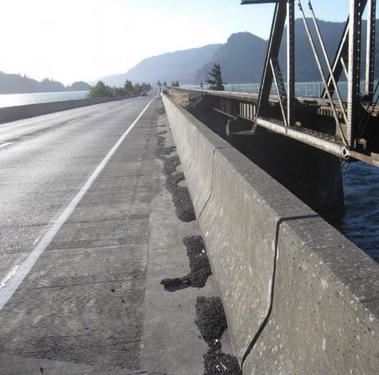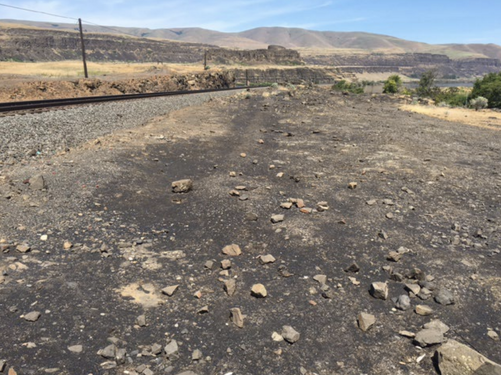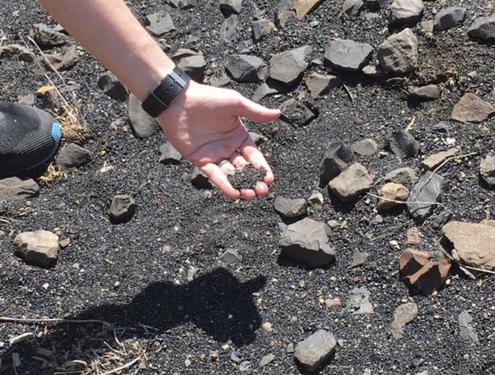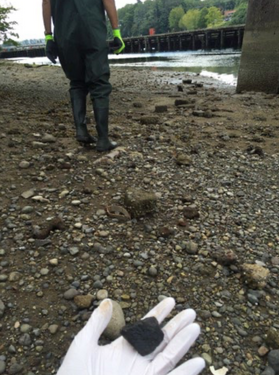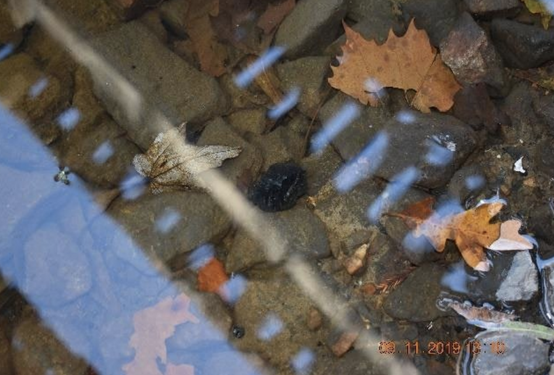U.S. Environmental Protection Agency (EPA): Difference between revisions
m Added language on historical lack of EPA action specific to coal dust in Hampton roads. |
|||
| (73 intermediate revisions by the same user not shown) | |||
| Line 1: | Line 1: | ||
''To read about the Clean Air Act, see: [[Regulation under the Clean Air Act]]'' | ''To read about the Clean Air Act, see: [[Regulation under the Clean Air Act]]'' | ||
The [https://www.epa.gov/ U.S. Environmental Protection Agency (EPA)] is a federal agency in the executive branch with a wide variety of responsibilities around protecting human health and environmental quality from environmental pollutants. Responsibilities include setting and enforcing environmental quality standards, pollution prevention, permitting, and remediation, scientific research and training, and grant making. | |||
The current U.S. President nominates (with Senate approval) the EPA Administrator. As a result, EPA activities are influenced by the President's political agenda, and certain issues can be either prioritized or deprioritized, neglected, and/or to some extent deregulated. | |||
Because the EPA is a federal agency, environmental issues under federal jurisdiction can only be addressed through EPA action, for example, air pollution from railroads and highways. | |||
== Role == | == Role == | ||
The | === Air Quality === | ||
The U.S. Clean Air Act is administered by the EPA and mandates the protection of human health and the environment from ambient (outdoor) air pollution. The EPA sets the [[Regulation under the Clean Air Act|National Ambient Air Quality Standards (NAAQS]]), including for [[Particulate matter and coal dust|PM<sub>2.5</sub>]] and [[Particulate matter and coal dust|PM<sub>10</sub>]], plays a critical role when states fail to adequately address air quality concerns, provides funds for air quality research, and sets emissions standards for vehicles and locomotives (not coal-filled railcars). | |||
=== Water Quality === | |||
The U.S. Clean Water Act is administered by the EPA and regulates water quality and the release of pollutants into U.S. waters. The EPA oversees the [https://www.epa.gov/npdes National Pollutant Discharge Elimination System (NPDES)] permit program, with a permit being required to discharge (release) any pollutant from a point source into navigable waters. Dust emissions from coal carrying railcars are not permitted under the [https://www.epa.gov/npdes NPDES] program; however, a 2023 petition the EPA from [https://www.publicjustice.net/ Public Justice] and [https://appalmad.org/ Appalachian Mountain Advocates] seeks to change this (more below).<ref name=":1" /> That said, the EPA has recently weakened the [https://www.epa.gov/npdes NPDES] program, a move upheld by the U.S. Supreme Court.<ref>[https://waterkeeper.org/news/supreme-court-decision-again-undermines-clean-water-act-protections/ Supreme Court Decision Again Undermines Clean Water Act Protections], ''Waterkeeper Alliance'', March 4, 2025.</ref><ref>[[:File:23-753 f2bh.pdf|City And County of San Francisco, California v. Environmental Protection Agency]], Supreme Court of the United States, No. 23–753, March 4, 2025.</ref> | |||
=== Locomotive Emissions === | |||
The EPA has had exclusive authority over emissions standards for new locomotives and engines. A recent change to the rule allows states to regulate emissions from existing and older locomotives and engines. This reverses a 25-year old policy that broadly preempted such state action, opening a pathway for states to address a longstanding regulatory hurdle to protecting communities near rail yards exposed to high levels of diesel pollution.<ref>[https://web.archive.org/web/20250704021752/https://earthjustice.org/press/2023/epa-provides-clarity-with-new-rule-states-can-cut-dirty-locomotive-pollution EPA Provides Clarity with New Rule: States Can Cut Dirty Locomotive Pollution. ''Earth Justice.'' November 1, 2023.] </ref> However, this rule change applies specifically to engine emissions under the Clean Air Act and does not cover non-engine sources like fugitive dust from train cars, including coal carrying rail cars. | |||
=== Environmental Justice === | === Environmental Justice === | ||
The EPA has authority under | '''Title VI:''' The EPA has authority under [https://www.justice.gov/crt/fcs/TitleVI Title VI of the Civil Rights Act] to investigate complaints of discrimination as related to environmental pollution and enforcement.<ref>[https://web.archive.org/web/20250617025204/https://www.epa.gov/external-civil-rights/federal-civil-rights-laws-including-title-vi-and-epas-non-discrimination Federal Civil Rights Laws (Including Title VI) and EPA's Non-Discrimination Regulations], October 16, 2024.</ref> This would include complaints related to coal dust pollution, which disproportionately affects Black and low-income residents in Newport News and Norfolk. | ||
In cases where communities believe environmental enforcement is applied unequally, Title VI allows them to file complaints with the | In cases where communities believe environmental enforcement is applied unequally, [https://www.justice.gov/crt/fcs/TitleVI Title VI] allows them to file complaints with the [https://www.epa.gov/external-civil-rights EPA's External Civil Rights Compliance Office]. The agency can then investigate whether permitting decisions, regulatory enforcement, or other actions by state or local agencies (as they receive federal financial assistance) have disproportionately harmed individuals on the "basis of race, color, or national origin." While the EPA cannot directly revoke permits, it can require corrective actions or withhold federal funding if violations are found. | ||
[https://www.justice.gov/crt/fcs/TitleVI Title VI] complaints to the [https://www.epa.gov/external-civil-rights EPA's External Civil Rights Compliance Office] have led state agencies to settle with community organizations with [[environmental justice]] concerns. For example, in 2014, the [https://ncejn.org/ North Carolina Environmental Justice Network (NCEJN)], [https://www.ncruralempowerment.org/ Rural Empowerment Association for Community Help (REACH)], and [https://waterkeeper.org/ Waterkeeper Alliance, Inc.] submitted such a complaint, alleging that industrial swine permitting and pollution disproportionately affected Black, Latino, and American Indian residents in Eastern North Carolina.<ref>Earthjustice on behalf of the North Carolina Environmental Justice Network, REACH, and Waterkeeper Alliance, Inc. to the North Carolina Department of Environment and Natural Resources, [[:File:Ncejn et al complaint under titlevi.pdf|Complaint Under Title VI of the Civil Rights Act of 1964]], 42 U.S.C. ss 2000d, 40 C.F.R. Part 7. U. S. Environmental Protection Agency, September 3. 2014. </ref> In 2016, the organizations filed a second complaint, claiming the [https://www.deq.nc.gov/ North Carolina Department of Environmental Quality (NCDEQ)] engaged in and failed to protect residents involved in the 2014 complaint from intimidation and threats of violence.<ref>Earthjustice on behalf of the North Carolina Environmental Justice Network, REACH, and Waterkeeper Alliance, Inc. to the North Carolina Department of Environment Quality, Title VI Civil Rights Complaint and Petition for Relief or Sanction by North Carolina Environmental Justice Network, REACH, and Waterkeeper Alliance, Inc., against North Carolina Department of Environmental Quality (EPA OCR File No. 11R-14-R4): Intimidation. U. S. Environmental Protection Agency, July 11, 2016. </ref> In 2017, the EPA sent a Letter of Concern to [https://www.deq.nc.gov/ NCDEQ], providing preliminary information on the [https://www.epa.gov/external-civil-rights EPA's External Civil Rights Compliance Office's] investigation, describing evidence that supported residents’ claims.<ref>Dorka, [[:File:Letter of concern to william g ross nc deq re admin complaint 11r-14-r4 .pdf|Letter of Concern to William G. Ross, Jr., Acting Secretary, North Carolina Department of Environmental Quality]], U.S. Environmental Protection Agency, EPA File No. l 1R-14-R4 External Civil Right Compliance Office, Office of General Council, January 12, 2017.</ref> The parties entered into mediation, reaching a settlement in 2018 that obligated [https://www.deq.nc.gov/ NCDEQ] to complete an [https://www.deq.nc.gov/about/divisions/air-quality/air-quality-monitoring/special-studies/duplin-county-air-monitoring-study-data-releases/dcams-reports-and-supporting-documents air quality study in the region], revise the [https://www.deq.nc.gov/about/divisions/water-resources/water-quality-permitting/animal-feeding-operations/2024-animal-feeding-operations-general-permits Swine General Permit] with community input, change its [https://www.deq.nc.gov/accessdeq/title-vi-compliance Title VI compliance programs], and develop an [https://ncdenr.maps.arcgis.com/apps/webappviewer/index.html?id=1eb0fbe2bcfb4cccb3cc212af8a0b8c8 environmental justice mapping tool].<ref>[[:File:Final-Settlement-Agreement attachments-and-sig.pdf|Settlement Agreement between the North Carolina Environmental Justice Network, Rural Empowerment Association for Community Help, and Waterkeeper Alliance, Inc. and the North Carolina Department of Environmental Quality]], 2018.</ref> | |||
* '''Clinton Administration (1993–2001):''' In 1994, President Clinton signed Executive Order (EO) 12898, "Federal Actions To Address Environmental Justice in Minority Populations and Low-Income Populations,"<ref>[[:File:12898.pdf|Executive Order 12898]], Federal Register, Vol. 59, No. 32, February 11, 1994.</ref> which directed federal agencies, including the EPA, to identify and address disproportionate adverse health or environmental impacts of their policies or programs on communities of color and low-income communities. President Trump's 2025 EO "Ending Illegal Discrimination and Restoring Merit-Based Opportunity" rescinded EO 12898.<ref>Executive Order: [https://www.whitehouse.gov/presidential-actions/2025/01/ending-illegal-discrimination-and-restoring-merit-based-opportunity/ Ending Illegal Discrimination and Restoring Merit-Based Opportunity], 2025.</ref> | |||
* '''Biden Administration (2021–2025) and Regan EPA:''' In President Biden issued EO 14096, “Executive Order on Revitalizing Our Nation's Commitment to Environmental Justice for All,”<ref name=":0">[[:File:2023-08955.pdf|Executive Order 14096]], Federal Register, Vol. 88, No. 80, April 21, 2023.</ref> which facilitated proactive and collaborative approaches and mechanisms for federal agencies, including the EPA, to work toward [[environmental justice]]. President Trump has also since rescinded EO 14096.<ref name=":0" /> | |||
** EPA Administrator Michael Regan was known as an advocate of [[environmental justice]], who "placed it at the center of our decision-making" at the EPA.<ref>[https://www.ehn.org/bidens-epa-leader-exits-as-environmental-justice-efforts-face-setbacks Biden’s EPA Leader Exits as Environmental Justice Efforts Face Setbacks], ''Environmental Health News'', January 10, 2025.</ref> In 2021, Regan went on a "Journey to Justice" tour, a five-day trip through Jackson, Mississippi, New Orleans, Louisiana, and Houston, Texas to highlight how Black and low-income communities are adversely affected by industrial pollution and lack of environmental infrastructure.<ref>Daly, [https://apnews.com/article/business-environment-and-nature-new-orleans-race-and-ethnicity-mississippi-9f530f701cdac07a4b9bbf7540e326bc EPA Head: 'Journey to Justice' Tour 'Really Personal for Me'], Associated Press, December 3, 2021.</ref> | |||
** The Biden Administration made substantial grant funds available to communities with [[environmental justice]] concerns, including through programs administered by the EPA such as the [https://www.epa.gov/inflation-reduction-act/inflation-reduction-act-community-change-grants-program Inflation Reduction Act Community Change Grants Program] and [https://www.epa.gov/inflation-reduction-act/thriving-communities-grantmaking-program Thriving Communities Grantmaking Program], in which the EPA directed funds to regional hubs for disbursement. | |||
* '''Second Trump Administration (2025–present) and Zeldin EPA:''' The Trump Administration and EPA Administrator Lee Zeldin have acted aggressively and illegally to undo progress toward [[environmental justice]].<ref>Azhar, [https://insideclimatenews.org/news/10032025/rollbacks-gut-environmental-justice-gains/ Rollbacks Gut Environmental Justice Gains, Former EPA Official Says], ''Inside Climate News'', March 10, 2025.</ref> Key to their efforts has been to wield [https://www.justice.gov/crt/fcs/TitleVI Title VI of the Civil Rights Act] against racial and ethnic minorities in favor of whites, claiming programs aimed at redressing racism are racist. Zeldin has canceled EPA-issued [[environmental justice]] grants, including those from major funding initiatives of the Biden Administration. Grantees and [https://www.epa.gov/inflation-reduction-act/thriving-communities-grantmaking-program Thriving Communities Grantmaking Program] passthrough organizations have sued the EPA and won in court, with a judge ruling the EPA's termination of the [https://www.epa.gov/inflation-reduction-act/thriving-communities-grantmaking-program Thriving Communities Grantmaking Program] violated the [https://www.law.cornell.edu/wex/administrative_procedure_act Administrative Procedure Act] because Congress intended the EPA to spend those funds on [[environmental justice]] activities and projects specifically.<ref>Guillén, [https://www.politico.com/news/2025/06/18/epa-termination-environmental-justice-grants-unlawful-00411906 Judge Rules EPA Termination of Environmental Justice Grants Was Unlawful], Politico, June 18, 2025.</ref> | |||
=== Research and grantmaking === | |||
[[File:Southeast CARE Coalition group tour for RESES.png|alt=Photograph of the Southeast CARE Coalition group tour for the EPA collaboration, the Regional Sustainable Environmental Science project in A Collaborative Effort to Assess Environmental Health in Newport News, Virginia, 2002.|thumb|Photograph of the Southeast CARE Coalition group tour for the Regional Sustainable Environmental Science (RESES) project from A Collaborative Effort to Assess Environmental Health in Newport News, Virginia, 2002.<ref>EPA, [[:File:A COLLABORATIVE EFFORT TO ASSESS ENVIRONMENTAL HEALTH IN NEWPORT NEWS VIRGINIA FINAL.PDF|A Collaborative Effort to Assess Environmental Health in Newport News, Virginia]], 2002.</ref>]] | |||
In 2002, the EPA collaborated with the [[Southeast CARE Coalition|Southeast CARE (Community Action for a Renewed Environment) Coalition]] on the Regional Sustainable Environmental Science (RESES) project to produce [[:File:A COLLABORATIVE EFFORT TO ASSESS ENVIRONMENTAL HEALTH IN NEWPORT NEWS VIRGINIA FINAL.PDF|A Collaborative Effort to Assess Environmental Health in Newport News, Virginia]], as part of the [https://19january2017snapshot.epa.gov/smartgrowth/making-visible-difference-communities-virginia_.html Region 3 Office Making a Visible Difference in Communities] program. The project focused on relationship building between the EPA, residents, and community organizations, issue identification, and analysis of available data and models. Air quality was identified as the major environmental concern among [[Southeast Newport News]] residents. | |||
In 2020, the EPA funded the [[Virginia Department of Environmental Quality (VA DEQ)|VA DEQ]] [[Tidewater Air Monitoring Evaluation (TAME)]] for $526,603 to measure [[Particulate matter and coal dust|PM<sub>2.5</sub>]] and [[Particulate matter and coal dust|PM<sub>10</sub>]] concentrations in [[Southeast Newport News]] and [[Lambert's Point, Norfolk]], as well as to characterize the trace metals content of the [[Particulate matter and coal dust|PM<sub>10</sub>]] and conduct a health risk assessment in partnership with the [[Virginia Department of Health (VDH)]]. VA DEQ has delayed this data collection for many years, and it has yet to start. | |||
In 2024, the [https://www.nnva.gov/ City of Newport News] purportedly submitted a proposal on coal dust pollution monitoring and mitigation to the EPA [https://www.epa.gov/inflation-reduction-act/inflation-reduction-act-community-change-grants-program Inflation Reduction Act Community Change Grants Program], which, for Tier I projects, like this one, offered funding in the range of 10–20 million dollars over 3 years.<ref name=":2" /> With a consulting firm, city representatives held one small community engagement meeting, in which participant calls for a [[Wind Fences and Tree Barriers|wind fence]] were dismissed as impossible by the [https://www.nnva.gov/269/City-Manager Newport News City Manager Alan Archer], ostensibly because city government cannot compel the terminals to install such infrastructure on their properties. The submitted proposal was never shared with city residents nor participants in the community engagement meeting. The activities described in the proposal and budget are unknown. EPA declined to fund the proposal.<ref name=":2">Hafner, [https://www.whro.org/environment/2025-02-21/newport-news-mayor-appointed-to-advise-epa-on-local-government-commitee Newport News Mayor Appointed to Advise EPA on Local Government Committee], ''WHRO'', February 21, 2025.</ref> | |||
== Relevance == | == Relevance == | ||
Community | [[File:NPDES Petition Figure 35 Coal Accumulating Under Railroad Bridge Crossing Clinch River.png|alt=Photograph of coal particles collected under a railroad bridge Crossing Clinch River|thumb|Photograph of coal particles collected under a railroad bridge Crossing Clinch River.<ref name=":1" />]] | ||
Community organizations often turn to the EPA when state agencies, like the [[Virginia Department of Environmental Quality (VA DEQ)|VA DEQ]], fail to act on local concerns. EPA involvement can bring federal pressure to bear on state and local agencies, often leading to stronger enforcement or regulatory changes. | |||
= | Citizens have the right to both petition<ref>EPA, [https://www.epa.gov/petitions#:~:text=EPA%20is%20governed%20by%20many,by%20EPA%20under%20these%20statutes. Petitions], May 19, 2025.</ref> and sue<ref>EPA, [https://www.epa.gov/ogc/notices-intent-sue-us-environmental-protection-agency-epa Notices of Intent to Sue the U.S. Environmental Protection Agency (EPA)], July 8, 2025.</ref> the EPA under numerous environmental laws, including the Clean Air Act and Clean Water Act. | ||
There is no record of targeted federal action addressing coal dust in Hampton Roads neighborhoods prior to 2022. Until then, air quality enforcement focused on criteria pollutants, and coal dust went largely unaddressed as a distinct hazard. | |||
= | In 2023, [[New Virginia Majority]] and the Sierra Club joined such a petition to the EPA submitted by [https://www.publicjustice.net/ Public Justice] and [https://appalmad.org/ Appalachian Mountain Advocates]. The petition requested new rulemaking to establish a U.S.-wide [https://www.epa.gov/npdes NPDES] permit "regulating the discharge of coal and other coal-related pollutants to navigable waters from uncovered railcars."<ref name=":1">[[:File:2023.9.26 Final Coal Train NPDES Petition.pdf|Petition For Rulemaking: To Establish Nationwide National Pollutant Discharge Elimination System Permit for Uncovered Railcars Transporting Coal Pursuant to 33 U.S.C. § 1342(A)]], 2023.</ref> The petition followed a decision by the [[Railroad Regulations#Surface Transportation Board|U.S. Surface Transportation Board (STB)]] in 2020 that uncovered railcars, including those carrying coal, could not be regulated on a state-by-state basis under the [https://www.epa.gov/npdes NPDES] permitting program, as railroads cross state lines.<ref>[https://www.congress.gov/bill/104th-congress/house-bill/2539 Interstate Commerce Commission Termination Act of 1995], House Resolution 2539, December 18, 1995.</ref> The petition includes expert testimony, research citations,<ref>Ferreira et al., [https://www.sciencedirect.com/science/article/pii/S0167610503000771 Full-Scale Measurements for Evaluation of Coal Dust Release from Train Wagons with Two Different Shelter Covers], ''Journal of Wind Engineering and Industrial Aerodynamics'', 91, 10, 1271–1283, 2003.</ref><ref>Jaffe et al., [https://www.sciencedirect.com/science/article/abs/pii/S1309104215000057 Diesel Particulate Matter and Coal Dust from Trains in the Columbia River Gorge, Washington State, USA], ''Atmospheric Pollution Research'', 6, 946–952, 2015.</ref><ref>Lazo et al., [https://www.sciencedirect.com/science/article/abs/pii/0301421596000250 Community Perceptions, Environmental Impacts, and Energy Policy: Rail Shipment of Coal], ''Energy Policy'', 24, 531–540, 1996.</ref> and photographic evidence that coal from uncovered railcars is lifted into air through turbulent air movement generated by the train's movement, even when coal loads are [[Chemical dust suppression: water sprinklers and chemical sealants|sprayed with chemical sealants]], and that airborne coal deposits in waterways near train tracks and under bridges.<ref name=":1" /> | ||
=== Region 3 (Mid-Atlantic) Office === | |||
EPA activities in Virginia are managed by the [https://www.epa.gov/aboutepa/epa-region-3-mid-atlantic Region 3 (Mid-Atlantic) Office], which encompasses: Delaware, District of Columbia, Maryland, Pennsylvania, Virginia, West Virginia, and seven federally recognized tribes. | |||
Residents with environmental concerns can contact EPA Region 3 staff through a variety of methods:<ref>[https://www.epa.gov/aboutepa/forms/contact-epas-region-3-office Contact EPA's Region 3 Office], May 19, 2025.</ref><ref>[https://voicesinthedust.org/File:Guide_to_Citizen_Enforcement.pdf Guide to Citizen Enforcement]</ref> | |||
* | * '''Phone:''' 215-814-5000 or 1-800-438-2474 (toll-free) in the Region 3 states. | ||
* | * '''Hotlines:''' The [https://www.epa.gov/aboutepa/epa-hotlines EPA hotlines page], business assistance at 800-228-8711, and regarding superfund issues at 800-553-2509. | ||
* | * '''Online form:''' Environmental violations can be reported through an [https://echo.epa.gov/report-environmental-violations online form]. | ||
* '''Emergencies:''' To report spills and other environmental violations, the National Response Center can be reached at 1-800-424-8802. | |||
* '''Records requests:''' Concerned residents seeking information, can [https://www.epa.gov/foia/submit-foia-request-0 make requests for records to the EPA] through the Freedom of Information (FOIA) Act. | |||
* '''Mail:''' Environmental Protection Agency, Four Penn Center, 1600 JFK Blvd., Philadelphia, PA 19103-2029. | |||
== Documents == | == Documents == | ||
[[:File:2023-24513.pdf|Federal Register | |||
* [[:File:12898.pdf|Executive Order 12898, Federal Register, Vol. 59, No. 32, February 11, 1994]] | |||
* [[:File:A COLLABORATIVE EFFORT TO ASSESS ENVIRONMENTAL HEALTH IN NEWPORT NEWS VIRGINIA FINAL.PDF|A Collaborative Effort to Assess Environmental Health in Newport News, Virginia, 2002]] | |||
* [[:File:2023-08955.pdf|Executive Order 14096, Federal Register, Vol. 88, No. 80, April 21, 2023]] | |||
* [[:File:2023-24513.pdf|Federal Register, Vol. 88, No. 215, November 8, 2023]] | |||
* [[:File:2023.9.26 Final Coal Train NPDES Petition.pdf|Petition For Rulemaking: To Establish Nationwide National Pollutant Discharge Elimination System Permit for Uncovered Railcars Transporting Coal Pursuant to 33 U.S.C. § 1342(A), 2023]] | |||
* [[:File:Guide to Citizen Enforcement.pdf|Guide to Citizen Enforcement]] | |||
* Petition For Rulemaking: To Establish Nationwide National Pollutant Discharge Elimination System Permit for Uncovered Railcars Transporting Coal Pursuant to 33 U.S.C. § 1342(A), 2023 Selected Images | |||
<gallery mode="packed-hover" heights="250px"> | |||
File:NPDES Petition Figure 5- Coal Accumulations on Roadway Bridge over Drano Lake, Adjacent to BNSF Bridge over Same Waterway .png|Drano Lake | |||
File:NPDES Petition Figure 7- Coal Accumulations at Horsethief Lake, Columbia River .png|Horsethief Lake, Columbia River | |||
File:NPDES Petition Figure 8- Coal Accumulations at Horsethief Lake, Columbia River .png|Horsethief Lake, Columbia River | |||
File:NPDES Petition Figure 11- Coal found under BNSF Bridge at Ballard Locks, Seattle .png|Ballard Locks, Seattle | |||
File:NPDES Petition Figure 14- Coal Pieces Found under BNSF Bridge at Skagit River, Next to Waterway .png|Skagit River | |||
File:NPDES Petition Figure 16- Coal in Blackwater River under Railroad Bridge .png|Blackwater River | |||
File:NPDES Petition Figure 24- Coal Pieces Found at St. Mary’s River under Railroad Bridge, below Ordinary High-Water Mark .png|St. Mary’s River | |||
File:NPDES Petition Figure 26- Coal located in Water in St. Mary’s River, Observed under Railroad Bridge over St. Mary’s River .png|St. Mary’s River | |||
</gallery> | |||
== References == | == References == | ||
Latest revision as of 19:01, 19 August 2025
To read about the Clean Air Act, see: Regulation under the Clean Air Act
The U.S. Environmental Protection Agency (EPA) is a federal agency in the executive branch with a wide variety of responsibilities around protecting human health and environmental quality from environmental pollutants. Responsibilities include setting and enforcing environmental quality standards, pollution prevention, permitting, and remediation, scientific research and training, and grant making.
The current U.S. President nominates (with Senate approval) the EPA Administrator. As a result, EPA activities are influenced by the President's political agenda, and certain issues can be either prioritized or deprioritized, neglected, and/or to some extent deregulated.
Because the EPA is a federal agency, environmental issues under federal jurisdiction can only be addressed through EPA action, for example, air pollution from railroads and highways.
Role
Air Quality
The U.S. Clean Air Act is administered by the EPA and mandates the protection of human health and the environment from ambient (outdoor) air pollution. The EPA sets the National Ambient Air Quality Standards (NAAQS), including for PM2.5 and PM10, plays a critical role when states fail to adequately address air quality concerns, provides funds for air quality research, and sets emissions standards for vehicles and locomotives (not coal-filled railcars).
Water Quality
The U.S. Clean Water Act is administered by the EPA and regulates water quality and the release of pollutants into U.S. waters. The EPA oversees the National Pollutant Discharge Elimination System (NPDES) permit program, with a permit being required to discharge (release) any pollutant from a point source into navigable waters. Dust emissions from coal carrying railcars are not permitted under the NPDES program; however, a 2023 petition the EPA from Public Justice and Appalachian Mountain Advocates seeks to change this (more below).[1] That said, the EPA has recently weakened the NPDES program, a move upheld by the U.S. Supreme Court.[2][3]
Locomotive Emissions
The EPA has had exclusive authority over emissions standards for new locomotives and engines. A recent change to the rule allows states to regulate emissions from existing and older locomotives and engines. This reverses a 25-year old policy that broadly preempted such state action, opening a pathway for states to address a longstanding regulatory hurdle to protecting communities near rail yards exposed to high levels of diesel pollution.[4] However, this rule change applies specifically to engine emissions under the Clean Air Act and does not cover non-engine sources like fugitive dust from train cars, including coal carrying rail cars.
Environmental Justice
Title VI: The EPA has authority under Title VI of the Civil Rights Act to investigate complaints of discrimination as related to environmental pollution and enforcement.[5] This would include complaints related to coal dust pollution, which disproportionately affects Black and low-income residents in Newport News and Norfolk.
In cases where communities believe environmental enforcement is applied unequally, Title VI allows them to file complaints with the EPA's External Civil Rights Compliance Office. The agency can then investigate whether permitting decisions, regulatory enforcement, or other actions by state or local agencies (as they receive federal financial assistance) have disproportionately harmed individuals on the "basis of race, color, or national origin." While the EPA cannot directly revoke permits, it can require corrective actions or withhold federal funding if violations are found.
Title VI complaints to the EPA's External Civil Rights Compliance Office have led state agencies to settle with community organizations with environmental justice concerns. For example, in 2014, the North Carolina Environmental Justice Network (NCEJN), Rural Empowerment Association for Community Help (REACH), and Waterkeeper Alliance, Inc. submitted such a complaint, alleging that industrial swine permitting and pollution disproportionately affected Black, Latino, and American Indian residents in Eastern North Carolina.[6] In 2016, the organizations filed a second complaint, claiming the North Carolina Department of Environmental Quality (NCDEQ) engaged in and failed to protect residents involved in the 2014 complaint from intimidation and threats of violence.[7] In 2017, the EPA sent a Letter of Concern to NCDEQ, providing preliminary information on the EPA's External Civil Rights Compliance Office's investigation, describing evidence that supported residents’ claims.[8] The parties entered into mediation, reaching a settlement in 2018 that obligated NCDEQ to complete an air quality study in the region, revise the Swine General Permit with community input, change its Title VI compliance programs, and develop an environmental justice mapping tool.[9]
- Clinton Administration (1993–2001): In 1994, President Clinton signed Executive Order (EO) 12898, "Federal Actions To Address Environmental Justice in Minority Populations and Low-Income Populations,"[10] which directed federal agencies, including the EPA, to identify and address disproportionate adverse health or environmental impacts of their policies or programs on communities of color and low-income communities. President Trump's 2025 EO "Ending Illegal Discrimination and Restoring Merit-Based Opportunity" rescinded EO 12898.[11]
- Biden Administration (2021–2025) and Regan EPA: In President Biden issued EO 14096, “Executive Order on Revitalizing Our Nation's Commitment to Environmental Justice for All,”[12] which facilitated proactive and collaborative approaches and mechanisms for federal agencies, including the EPA, to work toward environmental justice. President Trump has also since rescinded EO 14096.[12]
- EPA Administrator Michael Regan was known as an advocate of environmental justice, who "placed it at the center of our decision-making" at the EPA.[13] In 2021, Regan went on a "Journey to Justice" tour, a five-day trip through Jackson, Mississippi, New Orleans, Louisiana, and Houston, Texas to highlight how Black and low-income communities are adversely affected by industrial pollution and lack of environmental infrastructure.[14]
- The Biden Administration made substantial grant funds available to communities with environmental justice concerns, including through programs administered by the EPA such as the Inflation Reduction Act Community Change Grants Program and Thriving Communities Grantmaking Program, in which the EPA directed funds to regional hubs for disbursement.
- Second Trump Administration (2025–present) and Zeldin EPA: The Trump Administration and EPA Administrator Lee Zeldin have acted aggressively and illegally to undo progress toward environmental justice.[15] Key to their efforts has been to wield Title VI of the Civil Rights Act against racial and ethnic minorities in favor of whites, claiming programs aimed at redressing racism are racist. Zeldin has canceled EPA-issued environmental justice grants, including those from major funding initiatives of the Biden Administration. Grantees and Thriving Communities Grantmaking Program passthrough organizations have sued the EPA and won in court, with a judge ruling the EPA's termination of the Thriving Communities Grantmaking Program violated the Administrative Procedure Act because Congress intended the EPA to spend those funds on environmental justice activities and projects specifically.[16]
Research and grantmaking

In 2002, the EPA collaborated with the Southeast CARE (Community Action for a Renewed Environment) Coalition on the Regional Sustainable Environmental Science (RESES) project to produce A Collaborative Effort to Assess Environmental Health in Newport News, Virginia, as part of the Region 3 Office Making a Visible Difference in Communities program. The project focused on relationship building between the EPA, residents, and community organizations, issue identification, and analysis of available data and models. Air quality was identified as the major environmental concern among Southeast Newport News residents.
In 2020, the EPA funded the VA DEQ Tidewater Air Monitoring Evaluation (TAME) for $526,603 to measure PM2.5 and PM10 concentrations in Southeast Newport News and Lambert's Point, Norfolk, as well as to characterize the trace metals content of the PM10 and conduct a health risk assessment in partnership with the Virginia Department of Health (VDH). VA DEQ has delayed this data collection for many years, and it has yet to start.
In 2024, the City of Newport News purportedly submitted a proposal on coal dust pollution monitoring and mitigation to the EPA Inflation Reduction Act Community Change Grants Program, which, for Tier I projects, like this one, offered funding in the range of 10–20 million dollars over 3 years.[18] With a consulting firm, city representatives held one small community engagement meeting, in which participant calls for a wind fence were dismissed as impossible by the Newport News City Manager Alan Archer, ostensibly because city government cannot compel the terminals to install such infrastructure on their properties. The submitted proposal was never shared with city residents nor participants in the community engagement meeting. The activities described in the proposal and budget are unknown. EPA declined to fund the proposal.[18]
Relevance

Community organizations often turn to the EPA when state agencies, like the VA DEQ, fail to act on local concerns. EPA involvement can bring federal pressure to bear on state and local agencies, often leading to stronger enforcement or regulatory changes.
Citizens have the right to both petition[19] and sue[20] the EPA under numerous environmental laws, including the Clean Air Act and Clean Water Act.
There is no record of targeted federal action addressing coal dust in Hampton Roads neighborhoods prior to 2022. Until then, air quality enforcement focused on criteria pollutants, and coal dust went largely unaddressed as a distinct hazard.
In 2023, New Virginia Majority and the Sierra Club joined such a petition to the EPA submitted by Public Justice and Appalachian Mountain Advocates. The petition requested new rulemaking to establish a U.S.-wide NPDES permit "regulating the discharge of coal and other coal-related pollutants to navigable waters from uncovered railcars."[1] The petition followed a decision by the U.S. Surface Transportation Board (STB) in 2020 that uncovered railcars, including those carrying coal, could not be regulated on a state-by-state basis under the NPDES permitting program, as railroads cross state lines.[21] The petition includes expert testimony, research citations,[22][23][24] and photographic evidence that coal from uncovered railcars is lifted into air through turbulent air movement generated by the train's movement, even when coal loads are sprayed with chemical sealants, and that airborne coal deposits in waterways near train tracks and under bridges.[1]
Region 3 (Mid-Atlantic) Office
EPA activities in Virginia are managed by the Region 3 (Mid-Atlantic) Office, which encompasses: Delaware, District of Columbia, Maryland, Pennsylvania, Virginia, West Virginia, and seven federally recognized tribes.
Residents with environmental concerns can contact EPA Region 3 staff through a variety of methods:[25][26]
- Phone: 215-814-5000 or 1-800-438-2474 (toll-free) in the Region 3 states.
- Hotlines: The EPA hotlines page, business assistance at 800-228-8711, and regarding superfund issues at 800-553-2509.
- Online form: Environmental violations can be reported through an online form.
- Emergencies: To report spills and other environmental violations, the National Response Center can be reached at 1-800-424-8802.
- Records requests: Concerned residents seeking information, can make requests for records to the EPA through the Freedom of Information (FOIA) Act.
- Mail: Environmental Protection Agency, Four Penn Center, 1600 JFK Blvd., Philadelphia, PA 19103-2029.
Documents
- Executive Order 12898, Federal Register, Vol. 59, No. 32, February 11, 1994
- A Collaborative Effort to Assess Environmental Health in Newport News, Virginia, 2002
- Executive Order 14096, Federal Register, Vol. 88, No. 80, April 21, 2023
- Federal Register, Vol. 88, No. 215, November 8, 2023
- Petition For Rulemaking: To Establish Nationwide National Pollutant Discharge Elimination System Permit for Uncovered Railcars Transporting Coal Pursuant to 33 U.S.C. § 1342(A), 2023
- Guide to Citizen Enforcement
- Petition For Rulemaking: To Establish Nationwide National Pollutant Discharge Elimination System Permit for Uncovered Railcars Transporting Coal Pursuant to 33 U.S.C. § 1342(A), 2023 Selected Images
-
Drano Lake
-
Horsethief Lake, Columbia River
-
Horsethief Lake, Columbia River
-
Ballard Locks, Seattle
-
Skagit River
-
Blackwater River
-
St. Mary’s River
-
St. Mary’s River
References
- ↑ 1.0 1.1 1.2 1.3 Petition For Rulemaking: To Establish Nationwide National Pollutant Discharge Elimination System Permit for Uncovered Railcars Transporting Coal Pursuant to 33 U.S.C. § 1342(A), 2023.
- ↑ Supreme Court Decision Again Undermines Clean Water Act Protections, Waterkeeper Alliance, March 4, 2025.
- ↑ City And County of San Francisco, California v. Environmental Protection Agency, Supreme Court of the United States, No. 23–753, March 4, 2025.
- ↑ EPA Provides Clarity with New Rule: States Can Cut Dirty Locomotive Pollution. Earth Justice. November 1, 2023.
- ↑ Federal Civil Rights Laws (Including Title VI) and EPA's Non-Discrimination Regulations, October 16, 2024.
- ↑ Earthjustice on behalf of the North Carolina Environmental Justice Network, REACH, and Waterkeeper Alliance, Inc. to the North Carolina Department of Environment and Natural Resources, Complaint Under Title VI of the Civil Rights Act of 1964, 42 U.S.C. ss 2000d, 40 C.F.R. Part 7. U. S. Environmental Protection Agency, September 3. 2014.
- ↑ Earthjustice on behalf of the North Carolina Environmental Justice Network, REACH, and Waterkeeper Alliance, Inc. to the North Carolina Department of Environment Quality, Title VI Civil Rights Complaint and Petition for Relief or Sanction by North Carolina Environmental Justice Network, REACH, and Waterkeeper Alliance, Inc., against North Carolina Department of Environmental Quality (EPA OCR File No. 11R-14-R4): Intimidation. U. S. Environmental Protection Agency, July 11, 2016.
- ↑ Dorka, Letter of Concern to William G. Ross, Jr., Acting Secretary, North Carolina Department of Environmental Quality, U.S. Environmental Protection Agency, EPA File No. l 1R-14-R4 External Civil Right Compliance Office, Office of General Council, January 12, 2017.
- ↑ Settlement Agreement between the North Carolina Environmental Justice Network, Rural Empowerment Association for Community Help, and Waterkeeper Alliance, Inc. and the North Carolina Department of Environmental Quality, 2018.
- ↑ Executive Order 12898, Federal Register, Vol. 59, No. 32, February 11, 1994.
- ↑ Executive Order: Ending Illegal Discrimination and Restoring Merit-Based Opportunity, 2025.
- ↑ 12.0 12.1 Executive Order 14096, Federal Register, Vol. 88, No. 80, April 21, 2023.
- ↑ Biden’s EPA Leader Exits as Environmental Justice Efforts Face Setbacks, Environmental Health News, January 10, 2025.
- ↑ Daly, EPA Head: 'Journey to Justice' Tour 'Really Personal for Me', Associated Press, December 3, 2021.
- ↑ Azhar, Rollbacks Gut Environmental Justice Gains, Former EPA Official Says, Inside Climate News, March 10, 2025.
- ↑ Guillén, Judge Rules EPA Termination of Environmental Justice Grants Was Unlawful, Politico, June 18, 2025.
- ↑ EPA, A Collaborative Effort to Assess Environmental Health in Newport News, Virginia, 2002.
- ↑ 18.0 18.1 Hafner, Newport News Mayor Appointed to Advise EPA on Local Government Committee, WHRO, February 21, 2025.
- ↑ EPA, Petitions, May 19, 2025.
- ↑ EPA, Notices of Intent to Sue the U.S. Environmental Protection Agency (EPA), July 8, 2025.
- ↑ Interstate Commerce Commission Termination Act of 1995, House Resolution 2539, December 18, 1995.
- ↑ Ferreira et al., Full-Scale Measurements for Evaluation of Coal Dust Release from Train Wagons with Two Different Shelter Covers, Journal of Wind Engineering and Industrial Aerodynamics, 91, 10, 1271–1283, 2003.
- ↑ Jaffe et al., Diesel Particulate Matter and Coal Dust from Trains in the Columbia River Gorge, Washington State, USA, Atmospheric Pollution Research, 6, 946–952, 2015.
- ↑ Lazo et al., Community Perceptions, Environmental Impacts, and Energy Policy: Rail Shipment of Coal, Energy Policy, 24, 531–540, 1996.
- ↑ Contact EPA's Region 3 Office, May 19, 2025.
- ↑ Guide to Citizen Enforcement
